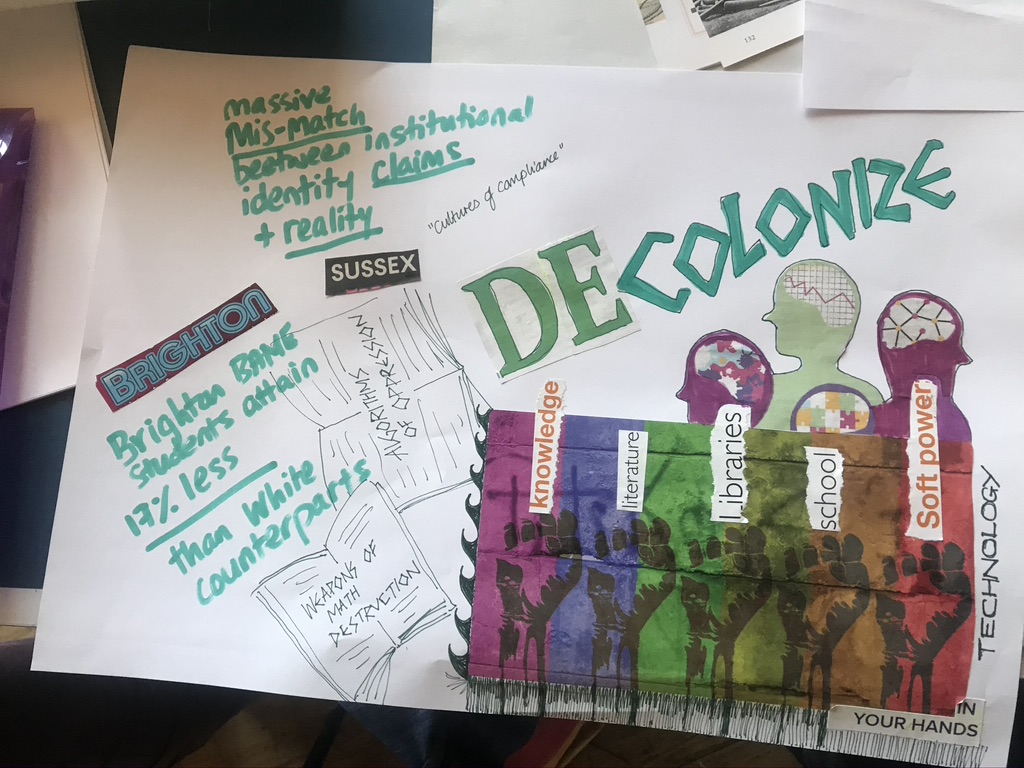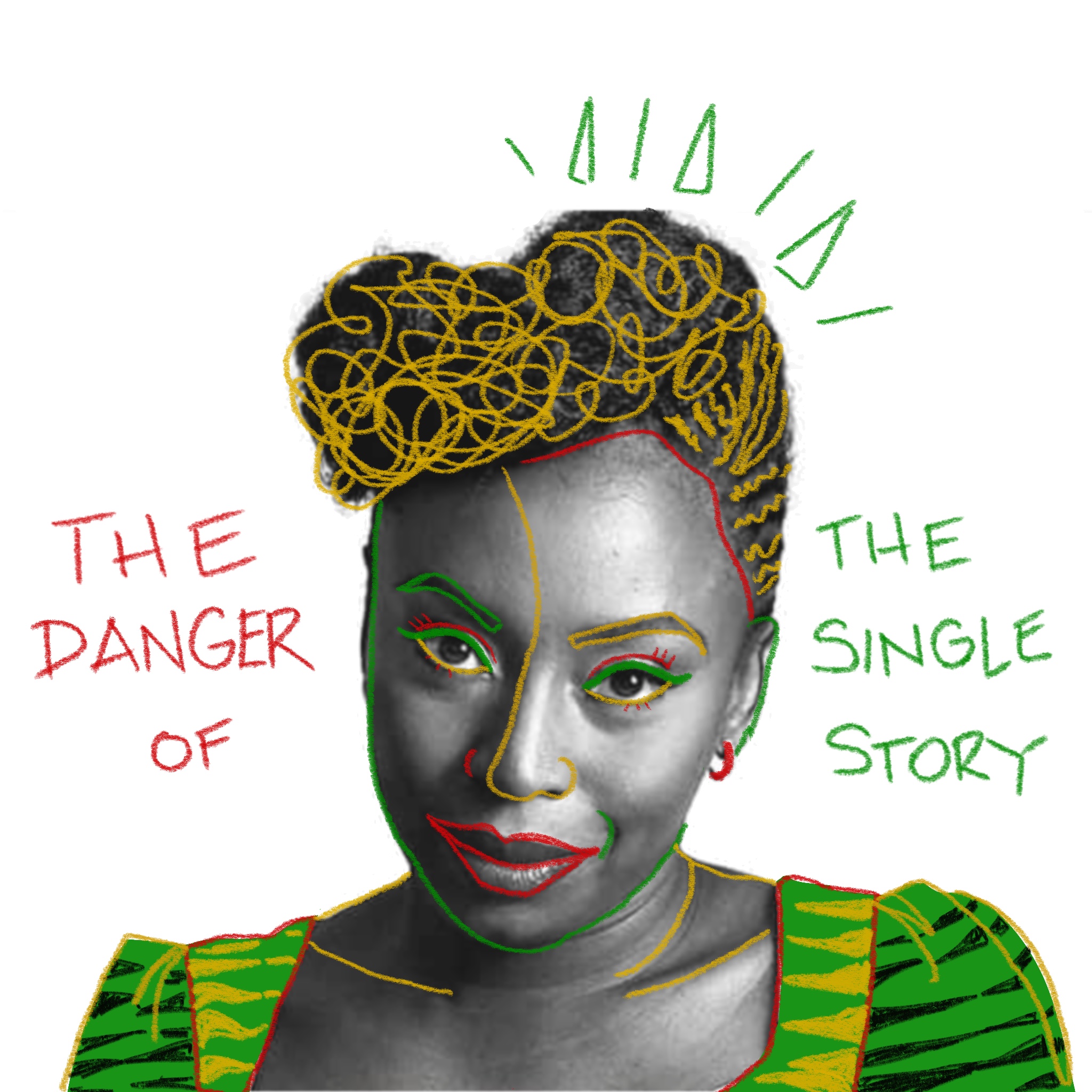
Brief description
The two exercises aim to encourage collective reflection and analysis on the role of racism, colonialism and discrimination in institutions of higher education. Drawing from decolonial feminist perspectives, the aim is to understand what mechanisms contribute to the perpetuation of Western colonial power in specific socio-historical contexts. Collectively constructing theoretical and political positions allows us to understand how certain types of knowledge or ways of knowing are legitimized, as well as the ways in which dominant teaching practices reproduce visible and invisible hierarchies.
These exercises also address tensions over the importance of Higher Education Institutions (HEIs) in the transformation of unequal societies. Feminist decolonial perspectives can contribute to the deconstruction of meanings and practices that reproduce oppression, as well as to the creation of knowledge and pedagogies capable of creating horizons of emancipation and social change. However, these efforts must seriously address the question of how universities, which are historical sites of colonial knowledge production, can engage with the counter-hegemonic knowledge proposed from critical strands.
Participants are divided into two groups. Each group will develop one of the exercises and produce a virtual collage (in Canvas or Miro) that summarises their reflections. An overall group discussion is held in a common access space to reflect conjointly over the different elements that each group reflected upon.
Procedure
Preparatory activity: View feminist writer Chimamanda Ngozi Adichie’s TED talk
The first step takes place in the video conference and Miro space. It consists of introducing the activity and dividing the participants into two equal breaking rooms. Each group will develop one of the exercises (10 minutes).
Activity A
Worksheets on critical teaching
Activity Description
50 minutes
It consists of a set of worksheets with guiding questions to critically reflect on teaching and learning practices (see exercise in Bridges toolkit). Five areas of reflection and proposal generation are offered:
- Teaching programs
- Learning spaces
- Pedagogical practices and interactions
- Relationship with the local context and
- Forms of evaluation
This group is separated into 5 breakout rooms. Each subgroup fills one worksheet (in the Miro space).

Procedure
Step 1
20 minutes
Each subgroup doing this exercise must respond and discuss the questions posed for each worksheet in the Miro template.
Step 2
30 minutes
The answers are discussed dedicating approximately 5 minutes for each of the areas worked on. The main conclusions are summarized through a collective collage (using Canva or Miro tools and posting it at the Miro space).
Activity B
The dangers of the Single story
Activity Description
50 minutes
This exercise relates to the video of the feminist writer Chimamanda Ngozi Adichie’s TED talk who addresses the relationship between the production of knowledge and the reproduction of domination as well as the epistemic alternatives and practices that can nest anti-racist struggles (see exercise in Bridges toolkit). Through different questions, participants (in subgroups) are invited to debate these issues.
This group will be separated into 5 (or less) breaking rooms. Each subgroup discusses within the template in the Miro space.

Procedure
Step 1
20 minutes
Participants, in subgroups, are asked to answer the questions posed in the Miro space and to write their discussion in the provided template.
Step 2
30 minutes
A group discussion is held to jointly reflect on the different elements that each subgroup discussed. The main conclusions are summarized through a collective collage (using Canva or Miro tools and posting it at the Miro space).
Both groups
Final step
30 minutes
Each of the groups that did the different exercises briefly explains the collage made to the overall group who jointly discuss the summaries and conclusions of the exercises within the Miro template provided (30 minutes).
Note
You can continue to deepen on the subject with the activities posted in the Miro template, outside the course time.
Necessary Materials
For virtual modality it is necessary that students can access the conjoint videoconference and to the Miro space of this activity as well as to the Canva platform (for making the collages).
Reading List - BRIDGES Tools
- Decolonize Education
- Decolonial Knowledge
- Structural Racism
- Worksheets for critical reflection (extended version)
- Worksheets Facilitator’s Guide
- Other toolkit activities related with Decolonizing education
- More information about Chimamanda Ngozi Adichie: https://www.chimamanda.com
Complementary reading and videos
- Ahmed, S. (2012). On being included: Racism and diversity in institutional life. Duke University Press.
- Bhambra, G. K., Gebrial, D., & Nişancıoğlu, K. (2019). Decolonising the university. Pluto Press.
- Cacopardo, Ana (2018). Historias debidas VIII: Silvia Rivera Cusicanqui. Canal Encuentro. Argentina.
- Lander, Edgardo (Comp.) (2000). La Colonialidad del saber: eurocentrismo y ciencias sociales. Perspectivas latinoamericanas. Buenos Aires: CLACSO.
- Lugones, M. (2010) “Toward a Decolonial Feminism.” Hypatia 25: 742-759. https://doi.org/10.1111/ j.1527-2001.2010.01137
- NUS Black Students Campaign. Why is My Curriculum White?
- Owusu, Melz. Decolonising the Curriculum. TEDxUniversity of Leeds.
- Tate, Shirley Anne & Bagguley, Paul (2017). Building the anti-racist university: next steps. Race Ethnicity and Education, 20(3), 289-299. DOI: 10.1080/13613324.2016.12602


